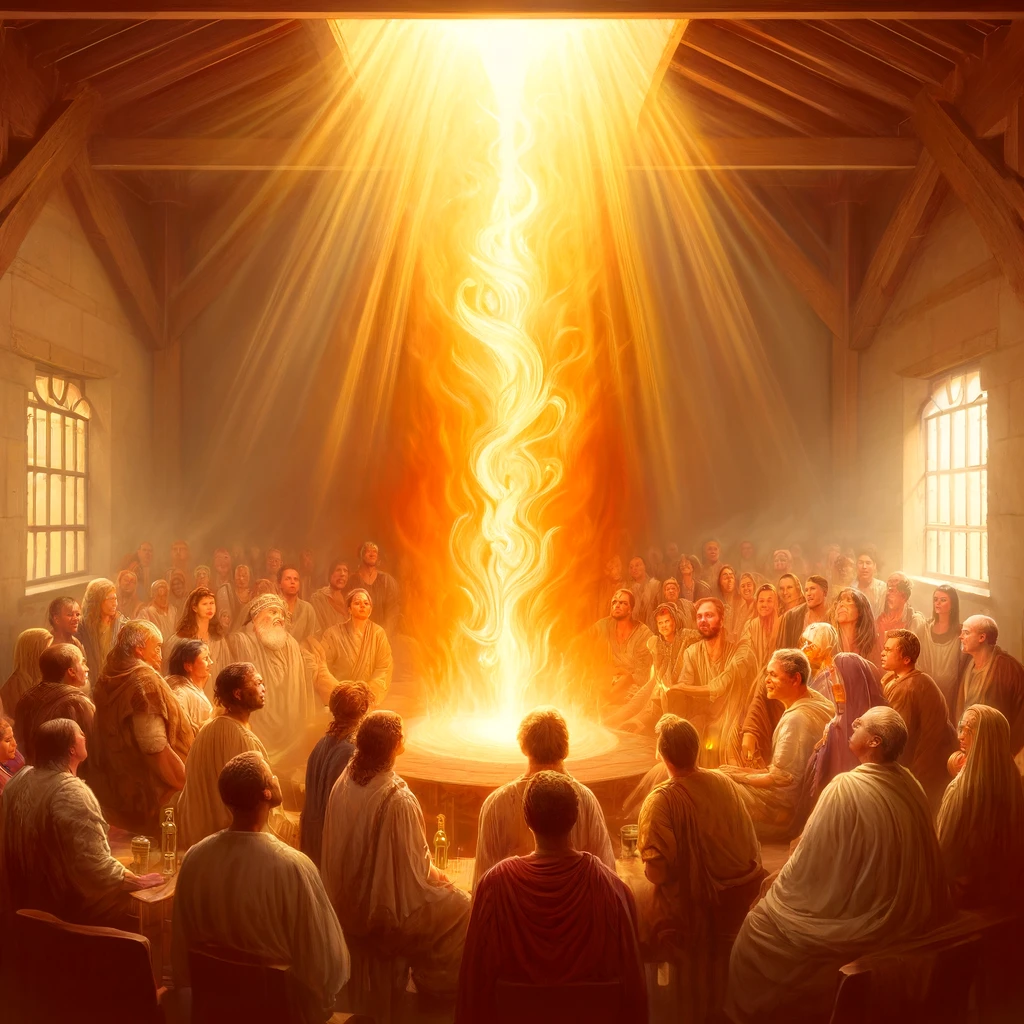For centuries, the crucifixion of Jesus has been interpreted as a divine sacrifice—a payment for humanity’s sins. Many traditional teachings frame his death as necessary to reconcile an angry God with a sinful world. But does this truly reflect God’s nature and Jesus’s mission? According to The Urantia Book, the answer is more profound. Jesus’ death was not a required atonement but a culmination of his life’s mission to reveal God’s loving, forgiving nature and bring humanity closer to spiritual truth.
God’s Nature: Love, Not Wrath
The Urantia Book challenges the view of God as a punitive figure demanding a sacrifice to forgive sin. Instead, it reveals a loving and merciful Father who forgives freely and without conditions. Jesus did not die to change God’s mind about humanity; rather, he lived and died to change humanity’s understanding of God.
Sin, as described in The Urantia Book, is not an insurmountable barrier between humanity and God. Instead, it is a deviation from divine will that can be corrected through spiritual growth and enlightenment. Forgiveness from God is not transactional but offered freely as a reflection of divine love.
The Cross: A Consequence, Not a Requirement
Jesus’ death on the cross was not required to atone for sin but was the natural consequence of his mission. He lived a life fully committed to revealing the truth about God’s love, even when it meant challenging the social, political, and religious authorities of his time. His teachings of spiritual freedom, forgiveness, and equality threatened established power structures, leading to his execution.
Far from being a divine demand, the crucifixion was a tragic human act. Yet, through his death, Jesus demonstrated the ultimate act of love, forgiveness, and faith. Even in his suffering, he revealed the truth of God’s boundless mercy, praying for the forgiveness of those who persecuted him.
Pentecost: The Spirit of Truth and the Thought Adjuster
The story does not end with the cross. Fifty days after Jesus’ resurrection, on the day of Pentecost, humanity received a monumental gift: the Spirit of Truth. This outpouring of divine guidance was a pivotal moment in spiritual history, empowering all people to connect directly with God. No longer would spiritual understanding rely solely on intermediaries or religious rituals; instead, the Spirit of Truth would dwell within every believer, leading them into a deeper relationship with God.

194:3.6 (2063.4) Do not overlook the fact that the Spirit of Truth was bestowed upon all sincere believers; this gift of the spirit did not come only to the apostles. The one hundred and twenty men and women assembled in the upper chamber all received the new teacher, as did all the honest of heart throughout the whole world. This new teacher was bestowed upon mankind, and every soul received him in accordance with the love for truth and the capacity to grasp and comprehend spiritual realities. At last, true religion is delivered from the custody of priests and all sacred classes and finds its real manifestation in the individual souls of men Alongside the Spirit of Truth, each individual is also gifted with a Thought Adjuster—an indwelling fragment of God that provides personal guidance and inspiration. Together, these divine influences enable every person to experience spiritual growth, discern truth, and align their lives with God’s will. The day of Pentecost marked the fulfillment of Jesus’ promise that the Father’s presence would be available to all, transcending the need for external atonement. – Urantia Book
Jesus’ Mission: To Reveal God’s Love
Jesus’ life and death were not about satisfying divine justice but about revealing divine love. Through his teachings, actions, and ultimate sacrifice, he demonstrated that God is a loving Father who seeks a personal relationship with each of His children. The cross, while a symbol of human cruelty, became a testament to Jesus’ unwavering dedication to truth and his willingness to share in the human experience, even to the point of death.
The Spirit of Truth and the Thought Adjuster continue this mission, enabling individuals to internalize and live out the principles Jesus embodied. These divine gifts ensure that every person, regardless of background or belief, can experience the transformative power of God’s love.
Conclusion: Atonement Without Sacrifice
Jesus did not have to die on the cross to atone for humanity’s sins; his death was not a requirement but a revelation. It showed the world the depth of God’s love and the courage of a life fully aligned with divine will. The day of Pentecost further confirmed that salvation is not about rituals or sacrifices but about the personal connection each individual can have with God through the Spirit of Truth and the Thought Adjuster.
This understanding shifts the focus from guilt to growth, from fear to faith, and from punishment to love. Jesus’ life, death, and the events of Pentecost remind us that we are never separated from God. We are, and always have been, embraced by His unconditional love and empowered to live lives of purpose, truth, and spiritual freedom.
